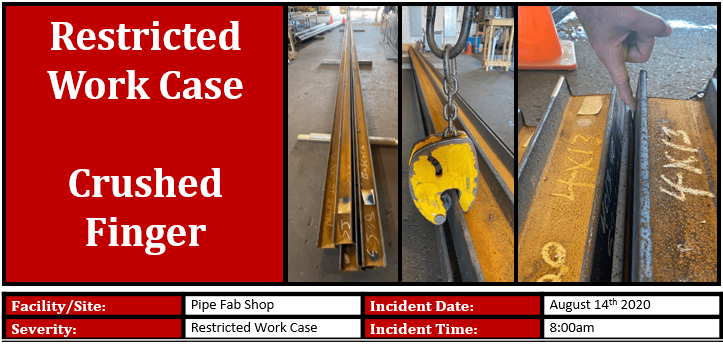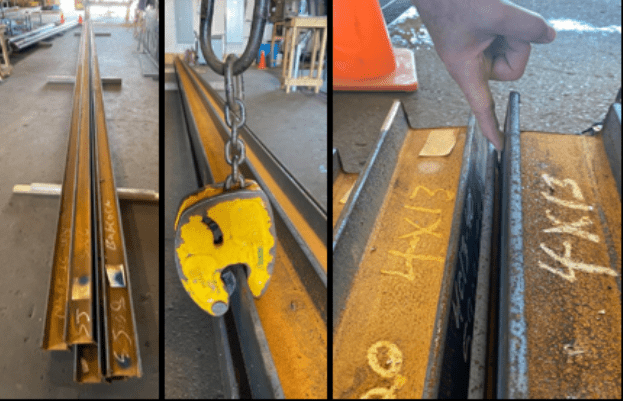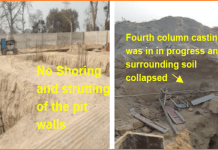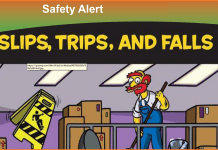Talking Points & Expectations
Our company has recently experienced two high severity line-of-fire incidents that were very similar in the work location and nature of the injury. Both injured employees had an inaccurate perception of risk due to not performing/following a detailed ZIP (Zero incident planning) and time pressure to get the task completed.
This year, 18 employees at work locations worldwide were involved in recordable incidents (higher severity incidents than first aid).
Globally our company incident statistics show that 61% of those workplace injuries were Line of Fire incidents. Line of Fire injuries occurs when the path of a moving object, or the release of hazardous energy, intersects with an individual’s body. To prevent Line of Fire incidents, an assessment of hazards using tools like three-way communication, Caring Conversations, Zero Incident Planning (ZIP), Stop-Think-Act-Review (STAR), and Stop Work Authority (SWA) are imperative prior to commencement of work.
CLICK HERE FOR 👉 HIRA
Organizational Expectations
- Discuss organizational and self-imposed time pressures and their impact on safety. If the sense of time pressure is a factor in completing the work, stop and re-evaluate the current task.
- Review the importance of utilizing the Stop Work Authority to seek additional help when a change deviates from the established plan or when unexpected conditions occur.
- Review the importance of utilizing STAR concepts to effectively plan all aspects of the task to be performed. Avoid shortcuts and follow established safe work practices.
- Evaluate current safe work practices to utilize portable material handling equipment for the removal of heavy objects, where applicable.
- Reaffirm commitments to safety and our Target Zero processes. (ZIPs and Stop Work Authority)
- Highlight the recent incidents, lessons learned, and human performance factors that contributed to them.


Incident Description
The injured employee was stud welding on a panel section placed on the welding table. The panel section had four threaded studs on the bottom which would not mate with the openings on the welding table. Contact with the table would cause an arc and possibly damage the threaded studs.
CLICK HERE FOR 👉 SCAFFOLDING
As a result, the panel was supported at both ends by 2×4 wood pieces placed on the end in order to provide clearance for threaded studs. At the completion of the welding, the employee was attempting to move the panel to a nearby cart for transport to the portable saw for trimming.
Since the welds were still hot, the employee kept the welding glove on his right hand while his left hand was protected with an impact-resistant glove. As he reached around the panel with his right hand, one of the 2×4 wood supports fell over causing the panel to fall and pinch his hand between the panel and the welding table.
Human Performance Factors & Lessons Learned
- Time Pressure while performing the task. Performing tasks in a safe manner may require additional time and effort, even for what seems to be a reasonably small job.
- Improper tools or materials selected for the task.
- Inaccurate Risk Perception. Not all job tasks are routine, therefore, detailed ZIP is required in order to complete in a safe manner.
- Complacency/Overconfidence
- Obtain the help of other employees and/or mechanical assisting equipment when handling items greater than 50 pounds (22.68kg).

Incident Description
An employee was repositioning beams 40ft(13m) long weighing 520lbs(236kg) so they could be cut into sections.
In that morning’s ZIP meeting/TBT, the workgroup identified using a monorail with chain falls and a beam clamp to move the beams to the ground below to mitigate any hazards involved.
CLICK HERE FOR 👉 SAFETY INDUCTION & TRAINING
Ignoring the recommended actions, the employee intended to pull on the beam to flip it over and down to the wood blocking below but as the employee began to pull on one end of the beam, it shifted back and recoiled into its original position, trapping the worker’s index finger between the beam he was moving and the stationary one next to it.
Human Performance Factors & Lessons Learned
- Recognize time pressure while performing the task and re-evaluate.
- Manage distractions in the work environment
- Inaccurate Risk Perception.
- Complacency/Overconfidence
- Ensure hazards that were identified during the ZIP are mitigated before starting work.
- Plan your work and work your plan!






Sr. Safety Manager job available in Delhi NCR if any person interested please send me your CV .
badsramanjeet@gmail.com
I want safety officer job. I have 6 years experienced in safety field.Iam completed NEBOSH, Iosh and diploma in industrial safety. Any requirement please contact me on sivanarayana.pantham@gmail.com , 9246666143.